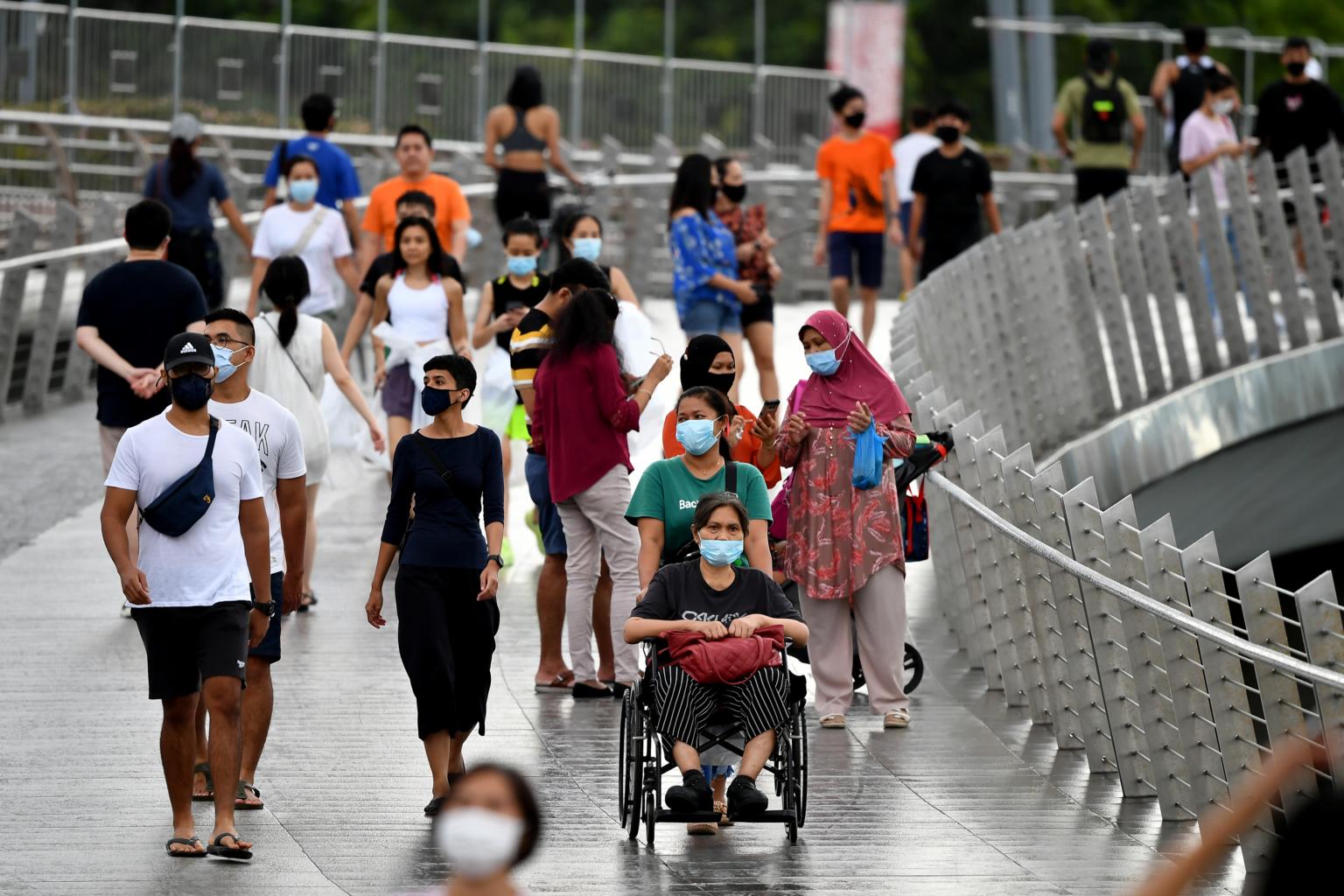Handle differences in race and religion with humility, forbearance, Heng Swee Keat says at NUS forum
Sign up now: Get ST's newsletters delivered to your inbox

Mr Heng Swee Keat urged Singaporeans to be humble enough to recognise and correct their biases and blind spots on matters like race.
ST PHOTO: LIM YAOHUI
SINGAPORE - The ability to handle differences with humility and forbearance is what bolsters unity in Singapore and contributes to one of the country's greatest strengths, said Deputy Prime Minister Heng Swee Keat on Friday (Aug 13).
This is especially the case when engaging with the deep and emotive issues of race and religion, he added.
"It is useful to appreciate that we not only have different opinions on these issues, but also different ways to approach them," Mr Heng said at a forum on shaping the country's future, organised by the National University of Singapore (NUS).
He urged Singaporeans to be humble enough to recognise and correct their biases and blind spots on matters like race.
And when they call out transgressions, they should also have the humility to not assume the worst of every action and comment, he said.
People should also exercise forbearance when engaging with others on such topics, Mr Heng added.
"Progress cannot be made by advocating loudly for a single viewpoint. We should instead seek out the different perspectives and expand the space for convergence."
Doing so will contribute to the "precious, but fragile" unity here, which is one of the country's greatest strengths, he said.
Mr Heng was speaking at the NUS115 Distinguished Speaker Series, organised as part of the university's 115th anniversary celebrations.
In his speech, the minister highlighted three of Singapore's strengths - its sense of unity forged through "careful nurturing", its creative capacity which must thrive in an open economy, and its social compact built through a collective effort.
He noted that recent incidents have shone a spotlight on racial harmony in Singapore and made clear that Singaporeans desire to do better as a society on this front.
But as with most social issues, there are different ideas on how progress can be made. That means discussions should take place "frankly but sensitively", he said, pointing out that older generations of Singaporeans have a different lived experience from young people today.
Young people who did not experience the chaotic years of Singapore's independence are generally better educated, with more exposure to global events and trends, Mr Heng said. They tend to be more comfortable expressing their thoughts on race and religion openly, especially on social media.
"I hope that the sense of unity that we have built so far will stand you well," he added. "I am confident that you will grow this further, if you continue to approach these issues with humility and forbearance."
Turning to the issue of creativity, Mr Heng spoke of how early generations of Singaporeans were creative in bucking conventional wisdom to forge their own paths, which helped the economy take off.
In doing so, they were open to the world - just as Singaporeans must be today.
The rise of remote work means that foreigners do not have to be in the country to compete with its citizens, Mr Heng said.
"The reality is that it is not possible to 'bubble wrap' our workers from foreign competition and still expect to succeed," he added. "It would be increasingly difficult, if not impractical, to confine opportunities by geography."
Instead, the country is working to transform its economy and equip its people for new opportunities, emphasising research, innovation, jobs and skills.
While there is room to adjust foreign manpower policies, Singapore cannot close its doors, Mr Heng stressed.
"We must not box ourselves into a false choice. Instead, we should embrace both openness and equip our people with the experience and skills to succeed. This is how we will thrive in a rapidly evolving world."
On the topic of Singapore's social compact, Mr Heng highlighted three groups of people for whom more needs to be done.
These are low-wage workers, the elderly and those with mental health issues. In each case, the wider community plays a role in helping to meet their needs.
For instance, employers must help low-wage workers upskill. Consumers must be prepared to pay a little more to improve their wages.
And every individual has a role to play in helping seniors remain actively engaged and supporting others' mental well-being, he said.
"A stronger social compact requires a collective societal effort," Mr Heng said. "We must continue to strengthen this. Increasingly, this will have to go beyond government measures and redistributive policies."
One common thread running through these three strengths is that each individual plays a part in building a better future, the minister observed, highlighting two incidents he encountered as a young policeman.
In the first, he visited scenes affected by the 1981 Brixton riots in the United Kingdom in a reinforced vehicle, as animosity was so great that trust between the authorities and people had broken down.
In the second, he saw in the early 1980s how Japan's koban system established police officers as part of the communities they were stationed in.
"This goes beyond policing," Mr Heng said. "If relationships can be built up over time, if people care for one another, they will look out for each other, and we will have a more cohesive society."
But the minister also warned that Singapore's strengths can decline as quickly as they have blossomed if the country does not adapt to changing circumstances.
"To have a better future, we must build on these strengths, and be prepared to grow new ones," he said. "Our ability to adapt depends on whether we can harvest lessons from our past, tend to the present, and seed the future."


